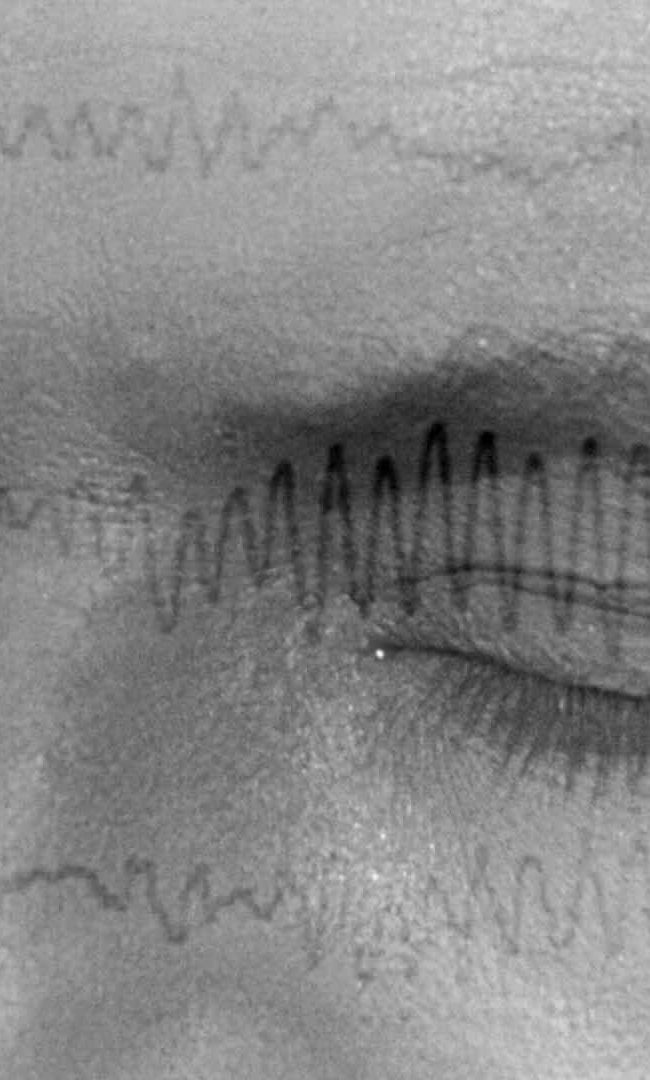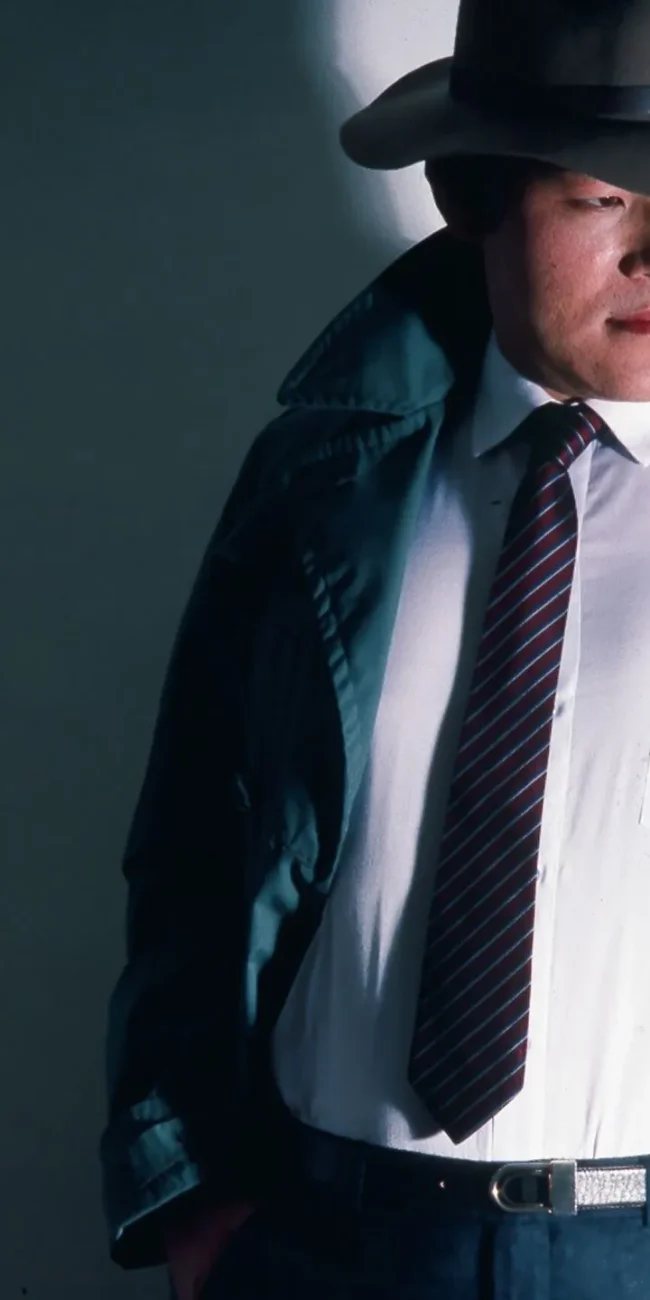A Conversation With Calvin Lee Reeder (THE OREGONIAN)
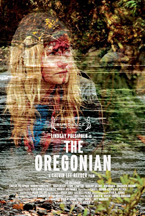 Calvin Lee Reeder’s The Oregonian is a horrifying film, if not what is commonly perceived as a “horror” film. It is deeply and fundamentally upsetting in an off-putting way that will sicken and alarm you if your idea of pure terror is anxiety over your own mortality and meaninglessness or being alone and lost in an unforgiving environment, as opposed to the tired slasher movie shock tactics of a knife appearing behind a scantily clad character to the tune of a sudden musical cue. Its closest comparison might very well be that other recent dreadful paean to social miscreants and the human-disguised demons that live among us (not to mention a celebration of outdated film/video formats): Harmony Korine’s Trash Humpers. Rather than setting out to surprise and astonish you with allegedly clever cuts and reveals, both films instead understand the value in establishing a truly sickening atmosphere of discomfort and misery, leaving the viewer unable to escape the insular world meticulously created by a clever conglomerate of every tool in the filmmaker’s arsenal. In The Oregonian, it all begins with the shooting format—mostly scratched, likely expired 16mm celluloid—before expanding to the bleak yet lush and familiar landscapes found in so many horror movies, and culminating with an aural assault of sound effects, music and breathing that suggests a panic attack happening inside an experimental folk music performance. (Read my full review of the film right here.)
Calvin Lee Reeder’s The Oregonian is a horrifying film, if not what is commonly perceived as a “horror” film. It is deeply and fundamentally upsetting in an off-putting way that will sicken and alarm you if your idea of pure terror is anxiety over your own mortality and meaninglessness or being alone and lost in an unforgiving environment, as opposed to the tired slasher movie shock tactics of a knife appearing behind a scantily clad character to the tune of a sudden musical cue. Its closest comparison might very well be that other recent dreadful paean to social miscreants and the human-disguised demons that live among us (not to mention a celebration of outdated film/video formats): Harmony Korine’s Trash Humpers. Rather than setting out to surprise and astonish you with allegedly clever cuts and reveals, both films instead understand the value in establishing a truly sickening atmosphere of discomfort and misery, leaving the viewer unable to escape the insular world meticulously created by a clever conglomerate of every tool in the filmmaker’s arsenal. In The Oregonian, it all begins with the shooting format—mostly scratched, likely expired 16mm celluloid—before expanding to the bleak yet lush and familiar landscapes found in so many horror movies, and culminating with an aural assault of sound effects, music and breathing that suggests a panic attack happening inside an experimental folk music performance. (Read my full review of the film right here.)
In advance of his The Oregonian’s long-awaited New York theatrical premiere at the reRun Gastropub on Friday, June 8, 2012, I spoke on the phone with Calvin Lee Reeder, who was taking a break editing a new feature film he had just shot. We transitioned slowly from discussing Reeder’s new film to my perception of the relationship between his short films—Little Farm, The Snake Mountain Colada and The Rambler, which is the basis for the new feature—and The Oregonian, as well as the methods of alternative distribution for films like ours.
Calvin Lee Reeder: The Oregonian delivers on the promise of the short films. Sort of soft focus, grainy image, expired film look. We knew when we made those shorts that people were going to be expecting a feature in that same vein, and I was also. And I feel like we did that with The Oregonian.
Hammer To Nail: And that’s something that you don’t feel the need to do again?
CLR: Not right away. And also I don’t know if I could have got away with it, with the money guys and the distributor like that. They want a product, less of an experiment. But it’s not like I went straight or something, it’s just not The Oregonian again is all.
H2N: For The Oregonian there were no money people telling you to make it more something they could sell, more middle of the road? You were free to do whatever?
CLR: Whatever the budget and the schedule would allow, we did. If anything, we made it look more experimental. If anything, the investors were more pro me pushing the boundaries as far as we could.
H2N: Do you think that helped the life and the reputation of the movie for festivals and distribution, or was it more that people didn’t want to watch it and didn’t feel comfortable with something that looks like this?
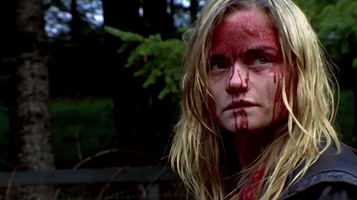 CLR: I’m sure it’s both. I’m sure most people in the world look at the movie and are like, “I don’t want to watch something that looks like this.” But some people in the world only want to watch stuff like that. So it just depends.
CLR: I’m sure it’s both. I’m sure most people in the world look at the movie and are like, “I don’t want to watch something that looks like this.” But some people in the world only want to watch stuff like that. So it just depends.
H2N: I want to talk about your distribution with Cinemad Presents, and the fact that this New York release is happening 18 months after the Sundance premiere. What attracted you to the way [Cinemad guru Mike Plante] wanted to handle the film?
CLR: To be perfectly honest, I would have agreed to do it with Plante even if it wasn’t this good. He and I are friends, so I knew that the film had limited possibilities of distribution. We were never confused about that. We thought it would end up on iTunes or Netflix and that would be the ballgame. But Plante told me that his distribution label Cinemad was growing and he had this new idea of how to approach it, so I was like, “Yeah let’s do that.” And I probably would have helped him get that off the ground even if I didn’t have a new film. I feel like I was kind of involved with it before I was even involved with it.
H2N: I was interested in the way he handles all his titles, which is personalized and interesting for any movie that the assumption isn’t “every city needs this for a week.”
CLR: Honestly, I haven’t talked to him that much about distribution in the last six months or so. When we did our blast, it was like, take this list of independent theaters, some of them are all over the world but mostly just stateside, and just blast ‘em. With screeners and emails and blah blah blah. And we’ll see who gets back to us. And our entire theatrical run was basically who got back to us.
H2N: I’m experiencing this now, with the amount cities we’re playing, it exceeds my expectations tenfold to even imagine the movie playing in Minneapolis, much less for several days. I just can’t believe it is playing there right now, tonight, and people are sitting there in a theater watching it and I’m not there for a Q&A, and it’s just a real thing. When you put the movie out there, not as a festival event with a Q&A, but just this thing that exists in theaters without you.
CLR: I’m really comfortable with that. I actually would prefer not to be there. I am not a fan of Q&A culture. You’ve seen me squirm through it enough, or at least one time. I just don’t like it, I don’t understand it. I’ll do it for film festivals because they’re nice enough to fly me out and be supportive, but if I can avoid being there, I will.
H2N: Is that something that you thought was in the future for The Oregonian? It’s not a thing that you are taking on tour, but it has a whole other life independent of festival or Q&A culture.
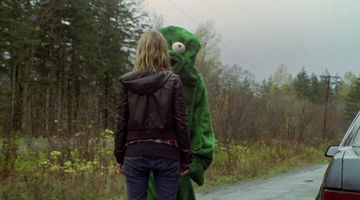 CLR: I’m excited that I can just mail it off and somebody can play it for a room of people; if I’m lucky a room of people.
CLR: I’m excited that I can just mail it off and somebody can play it for a room of people; if I’m lucky a room of people.
H2N: And getting reviews of the movie at this point, a year and a half later with another movie shot is perhaps not that important.
CLR: I don’t know. I don’t really understand reviews. So no, it’s not important to me.
H2N: Maybe the week it premiered if you were trying to sell it.
CLR: I appreciate people who review it, even if they say something nasty, it’s good that people can read about it. I guess I don’t understand the whole thing.
H2N: You would rather not have to be there, and not have to talk about the film?
CLR: I’m happy to try, it’s not a problem, but I usually disappoint.
H2N: Is there anything that you wished people would have asked that they never seemed to process?
CLR: If there was, I can’t think of it right now. You know, no, actually. Most questions I spend more time figuring out how not to answer them, so no. Whatever I reveal, whatever cards I show to people, I feel that I might actually be taking away from the experience of somebody who didn’t want to hear anything. And I know those people are out there. And when I open my mouth, I ruin it for the people who liked it while trying to appease the people who didn’t. It’s kind of a weird thing I go through. That’s just a dumb way of saying that the people who prefer to walk away with some mystery, they [are the type who usually like] The Oregonian.
H2N: I would rather the conversation about a movie take place on the way home amongst the people who saw it, not in the theater as soon as the movie is over.
CLR: You don’t like that either, huh?
H2N: It’s not that I don’t like it, because I do enjoy doing it, and I have fun with it and it’s nice to see people’s reactions and it’s nice to see people who are enthusiastic about engaging with you, but there are certain questions that I think people’s understanding and appreciation of something would be greater if they never knew the answer.
CLR: I think that it’s really strange but it’s come to be expected that “Alex Perry is going to be there to explain himself” and I don’t get it. Like they ask, “Don’t you have a prepared statement?” The f**king movie is my statement, it took me a year to do it. That’s what I have to say. There’s no further explanation. That’s my statement. There it is.
H2N: There is a lot of that thing in The Oregonian, where it would be better for people to talk about it with other people who saw it, rather than having you or Lindsay appear to talk about what it was like to shoot it, and what you felt.
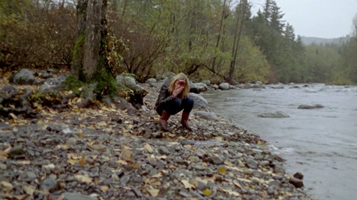 CLR: When I fell in love with cinema, it was with my friends. And we would discuss films and we would say what we thought happened at the end of Stalker. How did you interpret that? Or L’avventura. Why do you think they just lose the storyline of the missing girl? Those are the kind of f**kin’ things that make people fall in love with cinema, in particular art house cinema. You have those conversations, you build up your own opinion, you find out what your taste is. But if we have Zulawski, Antonioni or Tarkovsky there to answer these questions, well then what the f**k did we watch the movie for? We could have just sat there and had somebody tell us something.
CLR: When I fell in love with cinema, it was with my friends. And we would discuss films and we would say what we thought happened at the end of Stalker. How did you interpret that? Or L’avventura. Why do you think they just lose the storyline of the missing girl? Those are the kind of f**kin’ things that make people fall in love with cinema, in particular art house cinema. You have those conversations, you build up your own opinion, you find out what your taste is. But if we have Zulawski, Antonioni or Tarkovsky there to answer these questions, well then what the f**k did we watch the movie for? We could have just sat there and had somebody tell us something.
H2N: Like a lecture. All those people you mentioned, I would watch a lecture on life and love and relationships just as quickly as I would watch one of their films, and I would probably learn just as much watching them ruminate.
CLR: Yeah, those are kind of giants aren’t they? I’d probably do the same thing.
H2N: You had the Zulawski retrospective in LA, right?
CLR: Oh my God, yeah, that’s why I said his name. I went to as many of those as I could. I missed three or four of them. I love that sh*t.
H2N: I saw every one in the theater every day for two weeks, and every night the conversation was outside the theater. Like Shaman, have you seen Shaman?
CLR: That’s the one with the bank robbery?
H2N: No they find the body of an old shaman and then there is this feral sexual woman. It is from 1996, it is the craziest out of all of them. It is on this whole other level. There’s nothing that could be added by the creator explaining it.
CLR: If you went and saw My Nights Are More Beautiful Than Your Days, which is something you did, if you’re anything like me, I walked out of that thing exhausted. I didn’t want to hear anybody talk at all. And then the next day I started to think about it and I called my buddy who I went and saw it with and we had that conversation. But I’m not ready for a lecture after a movie like Le Femme Publique.
H2N: Why not, I feel like I can put you in the same category as Zulawski. When The Oregonian ends, you don’t want the lights to come up and have a back and forth. I don’t think that’s necessary for that movie. That movie should end at 1:45 in the morning and people should stumble home.
CLR: That would be great.
H2N: When I saw it, it started at 11:30 so the Q&A must have been at 1:10.
CLR: That was horrible.
H2N: That’s a great time for the movie to screen, but maybe you’d be better off to get on with your night and think about it. How does that tie into the movie being available to stream and watch online? Is that a way you are comfortable with people watching the film?
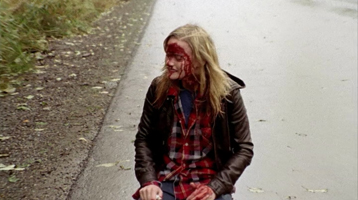 CLR: I guess I have to be of my times and that’s the way it’s going. I could be a purist and wish only anybody could see it in the theater, but I watch so many movies on TV. Most people have seen a lot more movies on TV than in the theater, so they can stream their content to a television screen and, if we’re lucky, some kind of decent sound system, then I’m happy as a clam. I understand that most people watch it on their little screen with no headphones or anything, but I feel like in a sense I’m protected because those people are turning off The Oregonian within two minutes and writing a bad review. So I feel like, in a sense, when you see a movie like The Oregonian and you don’t have a decent home set up, you’re not even going to take the time to get into it.
CLR: I guess I have to be of my times and that’s the way it’s going. I could be a purist and wish only anybody could see it in the theater, but I watch so many movies on TV. Most people have seen a lot more movies on TV than in the theater, so they can stream their content to a television screen and, if we’re lucky, some kind of decent sound system, then I’m happy as a clam. I understand that most people watch it on their little screen with no headphones or anything, but I feel like in a sense I’m protected because those people are turning off The Oregonian within two minutes and writing a bad review. So I feel like, in a sense, when you see a movie like The Oregonian and you don’t have a decent home set up, you’re not even going to take the time to get into it.
H2N: That’s how I feel about streaming stuff in general. If they decide they don’t like it, since it didn’t take any effort to start playing it, it doesn’t take any effort to stop playing it.
CLR: Exactly. And you get a little money too, so that’s not so bad.
H2N: What’s the best thing you can say about going to see The Oregonian in the theater? If someone asked me, I would say there is an aural quality to it, and you should hear it louder than your computer or television speakers would be doing.
CLR: The main reason is the audio design. In a theater it will be much easier to pick out all the work we did. We did easily as much audio work as we did visual. The second is when you’re in a theater, like everybody says, you don’t get up and do the dishes or make a sandwich. Or your roommate is talking on the phone. We kind of made The Oregonian for you to be locked in for 80 minutes, and to go on that trip.
H2N: I do, and I hope that other people do as well.
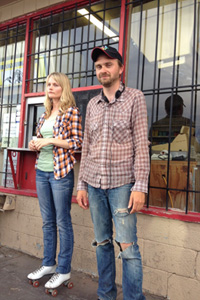 CLR: I feel like I’m just lucky to have anybody watch the movie at all. The way films get distributed is really depends on what the film is. A guy like Matt Grady [Factory 25] is fantastic because he’ll give a shot to all these different types of films. I think the film ultimately dictates where it will play. Like, The Oregonian is probably not going to play the f**kin’ AMC. So I guess it’s going to play the art house. I guess that’s probably true for The Color Wheel.
CLR: I feel like I’m just lucky to have anybody watch the movie at all. The way films get distributed is really depends on what the film is. A guy like Matt Grady [Factory 25] is fantastic because he’ll give a shot to all these different types of films. I think the film ultimately dictates where it will play. Like, The Oregonian is probably not going to play the f**kin’ AMC. So I guess it’s going to play the art house. I guess that’s probably true for The Color Wheel.
H2N: And yet I saw The Oregonian in a Regal [at the Sarasota Film Festival]. Which is one of my favorite ways to see movies that don’t belong there at all.
CLR: It’s a cheat because it was a festival.
H2N: It was still a theater with seven dollar popcorn.
CLR: Actually I know if they’re selling seven dollar popcorn, they have some semblance of a professional sound system and is actually my favorite way to show it.
H2N: Those theaters do always do it right. I’ve never had a technically disastrous screening at a multiplex.
CLR: I don’t think I have either. Any room that’s wired for sound, I’m f**kin’ happy with.
After I stopped recording, Reeder went on a brief but incisive tangent about the new models and methods of independent distribution that I am including in its entirety:
CLR: I am part of it with doing a Kickstarter, but I don’t want it to be expected of me to do that sort of thing. It was pretty amazing seeing all the support and curiosity that came with it but I’d rather that be more of a one-time deal and not some new standard. If I do that again I want it to be my choice. I don’t want that to be an implicit expectation. I want that to be my choice. If independent distribution starts to raise the expectation that you have to be at these theaters and be super cute and witty promoting it on Twitter then that’s a completely different job from making a film. I don’t really have those skills.
— Alex Ross Perry








